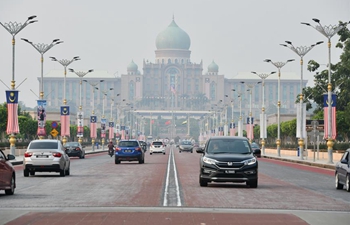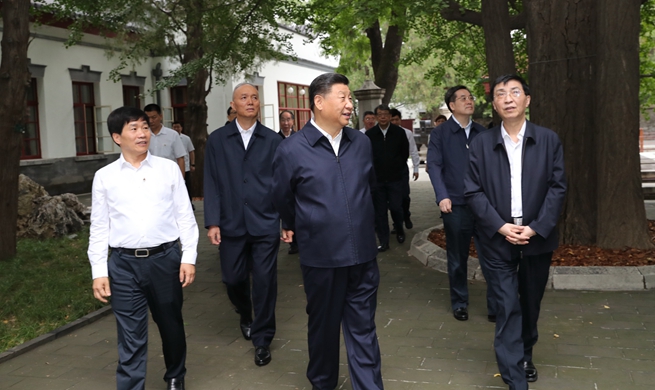HARARE, Sept. 13 (Xinhua) -- Zimbabwe's central bank said Friday the ongoing cash shortages are affecting foreign visitors to the country.
The bank is controlling the supply of money in the economy to curb inflation that has begun to rise rapidly in recent months, Reserve Bank of Zimbabwe Governor John Mangudya said in his 2019 midterm monetary policy statement.
"The increase in the demand for physical cash has worsened cash shortages, as reflected by unending queues at most banks in the country," he said. "In addition, visitors to the country, including tourists, are failing to access cash for their domestic transactions, as they are supposed to buy local currency cash from banks or bureaux de change."
Failure to get cash is undermining confidence in the local currency and forcing economic agents to resort to illegal transactions in foreign currency and to selling cash at a premium, Mangudya said.
As part of monetary reforms, Zimbabwe in June banned the use of the multi-currency regime that was introduced in 2009, and reintroduced the local currency that is currently made up of electronic money known as the Real Time Gross Settlement (RTGS), bond notes and coins.
Early in February, the central bank introduced the inter-bank foreign currency market to curb rampant foreign currency trading on the parallel market and to harness foreign exchange through the formal market.
As a result, Mangudya said, about 799 million U.S. dollars worth of foreign currency had been traded on the inter-bank market since its introduction.
The central bank said it is moving toward bringing inflation under control and to lower it over time.
To tame inflation, the central bank raised its overnight lending rate from 50 percent to 70 percent.
"The bank expects inflation to start declining after the current high inflation cycle ends, as attested by ebbing exchange rate depreciation pressures, following the removal of the multi-currency system," Mangudya said.
He said the monetary reforms are aimed at easing current inflationary pressures.
Inflation, at 5.39 percent in September 2018, surged to 175.5 percent in June 2019, mainly reflecting the exchange rate price indexation in an environment of high premiums in the parallel market.
"The policies being pursued by government will undoubtedly tame the inflationary pressures currently bedeviling the economy," Mangudya said.













